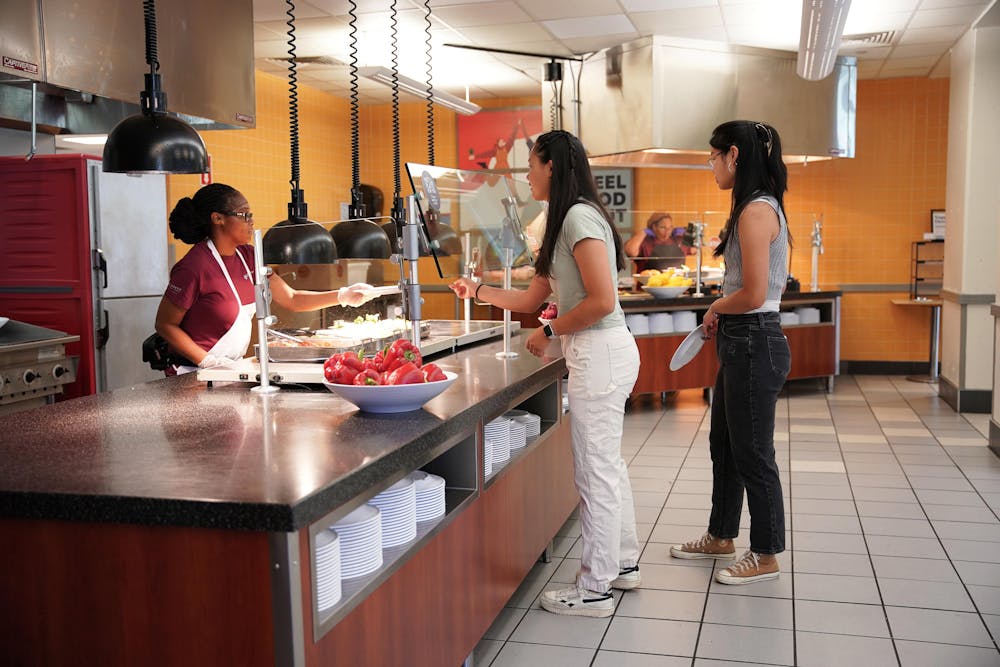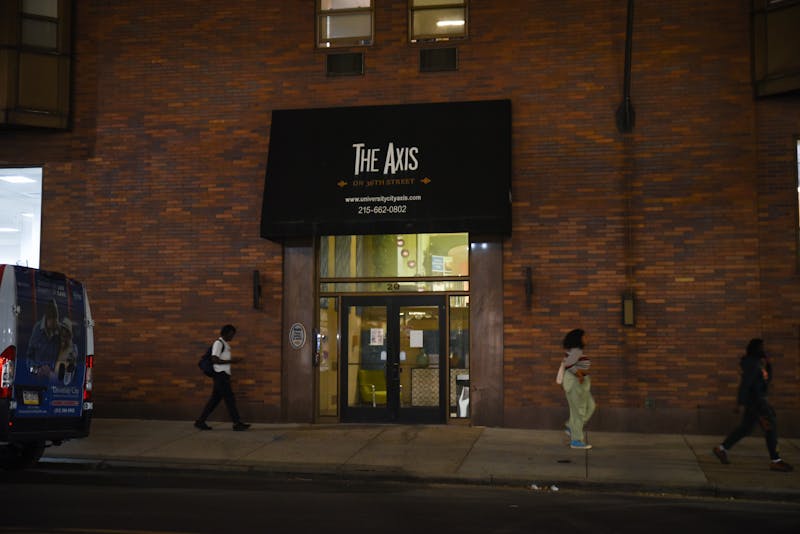
Four years ago, Penn launched its “Second Year Experience.” The current seniors will be the first graduating class required to live two years on campus with a dining plan. With the recent campus power outage, flooding that displaced more than 50 students, unexpected discoveries in dining hall food, and questions about Penn’s treatment of its dining hall workers, it is time that we call this plan into question.
Issues with housing have persisted in recent years without noticeable improvement. The cost of on-campus living appears to prioritize profit over affordability. Disparities in the treatment of residents among different college halls is a prime example. While residents in Gutmann College House receive Patagonias and modern facilities, others living in the High Rises face issues like flooding, false smoke alarms, and maintenance issues, raising questions about the fairness of the pricing structure. By charging the same amount for old and modern facilities, the institution exploits students in inferior housing.
It is also clear that Penn’s lottery-based housing placement system promotes unpredictability and inequality that violates fair and accessible housing options. The lottery system does not take into account students’ preferences, needs, or budgets. Thus, juniors and seniors who want on-campus housing are unable to secure it — given the waitlist of around 800 students — while many sophomores required to live on campus would rather live off campus.
Students express a lack of satisfaction with the dining system as well. There is a significant problem with the lack of flexibility surrounding meal plan swipes. Rather than promoting a system that makes the most efficient use of available resources and student needs, we have little say over how and where our money can be spent.
Despite programs like Swipe Out Hunger that allow for the donation of five meal swipes a semester, most students have substantially more swipes remaining at the end of each semester. Unfortunately, we are not allowed to donate all unused swipes to those who could benefit from them, nor can we convert them into other forms of sustenance. Nearly 250,000 people in Philly are food insecure, and as the region’s largest private employer, Penn has a responsibility to serve its surrounding communities. The lack of flexibility not only undermines the values of community and support, but also leads to a considerable amount of students’ resources being wasted.
We have had enough and want to see an actual change. Thus, we urge the University to take the following steps.
If the University wants to improve the current standards, it is crucial for them to work closely with their staff and Bon Appétit, Penn’s food-service partner. By doing so, they can establish higher expectations and ensure that the services provided cater to the diverse needs and preferences of the student population. Not all students can afford to dine elsewhere regularly when Penn Dining is falling below standards. Evaluating successful university dining plans — such as UCLA, Virginia Tech, Duke, or even our fellow Ivy, Cornell, which sits at 13th best college food in America — can provide us a framework to work towards a better dining experience.
Penn also needs to make sure they take their dining staff’s needs into account. With Penn’s history of mistreatment towards its dining employees, it is time that the University listens to and values all of its workers.
The University's immediate focus should be on addressing the pressing issues within the current on-campus living options for Penn students. Repeated instances of mold, collapsed ceilings, burst pipes, and evacuations prove that living conditions are subpar. Shifting your emphasis towards ensuring higher quality of housing, rather than merely increasing the quantity of students living in them, can ensure the experience that Penn boasts of.
If Penn ultimately decides to continue requiring second-year housing and dining, a thorough overhaul is imperative to ensure that the experience meets the expectations and needs of students. Eliminating the Second Year Experience should not be overlooked, either. Campus administration would be able to channel resources and efforts more effectively towards improving the quality of accommodations and dining options. This strategic shift would allow the University to concentrate on refining the second-year experience rather than stretching resources thin to accommodate a larger population.
The lack of proactive response from the University on these matters is disconcerting. Food and housing are the bare minimum. It is imperative that they take immediate action.
Editorials represent the majority view of members of The Daily Pennsylvanian, Inc. Editorial Board, which meets regularly to discuss issues relevant to Penn's campus. Participants in these meetings are not involved in the reporting of articles on related topics. Reach us at edboardchair@dailypennsylvanian.com.
The Daily Pennsylvanian is an independent, student-run newspaper. Please consider making a donation to support the coverage that shapes the University. Your generosity ensures a future of strong journalism at Penn.
Donate












